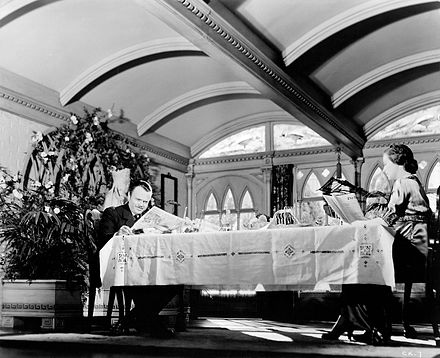
Citizen Kane
You can watch almost any film ever made since 1941 and there will be an echo of Citizen Kane in it. Focus and it’s there, as resonant and specific as the dying gasp of ‘Rosebud’ which punctuates the entire film. Have you ever seen Fantastic Beasts and Where to Find Them? The Godfather? Aftersun? Then there will be something in Citizen Kane you recognise.
The juggernaut-like legacy the film has left behind has rather obscured the poignancy of the story: a very broken man whose entire existence is an attempt to recapture senses of security, joy and love. It is an unemotional argument for the necessity of unconditional parental love and how misunderstandings can ruin a person’s life. In fact, it’s a testament to the film’s quality that it is neither tragic nor melodramatic, especially when you consider Orson Welles watched Stagecoach as research.
Citizen Kane is so intricately constructed that I reckon it invented academic film study. What is so unnerving on first watch is the sheer specificity of embellishments, of snowglobes, jigsaws and breakfasts surrounded by pot-plants. This is because everything you see on screen, the order in which you see it and the way it is presented to you, can be identified as purposeful with an attached meaning which adds to the appreciation of the story. This is the influence the film has over every other: that filmmaking is not only an art, but one of such intricate and spiralling possibilities that if a woman dressed in white is just a woman dressed in white then, quite frankly, watching is a waste of time.
Image address [Free to share and use]https://en.wikipedia.org/wiki/File:Citizen-Kane-Welles-Warrick-Breakfast.jpg

